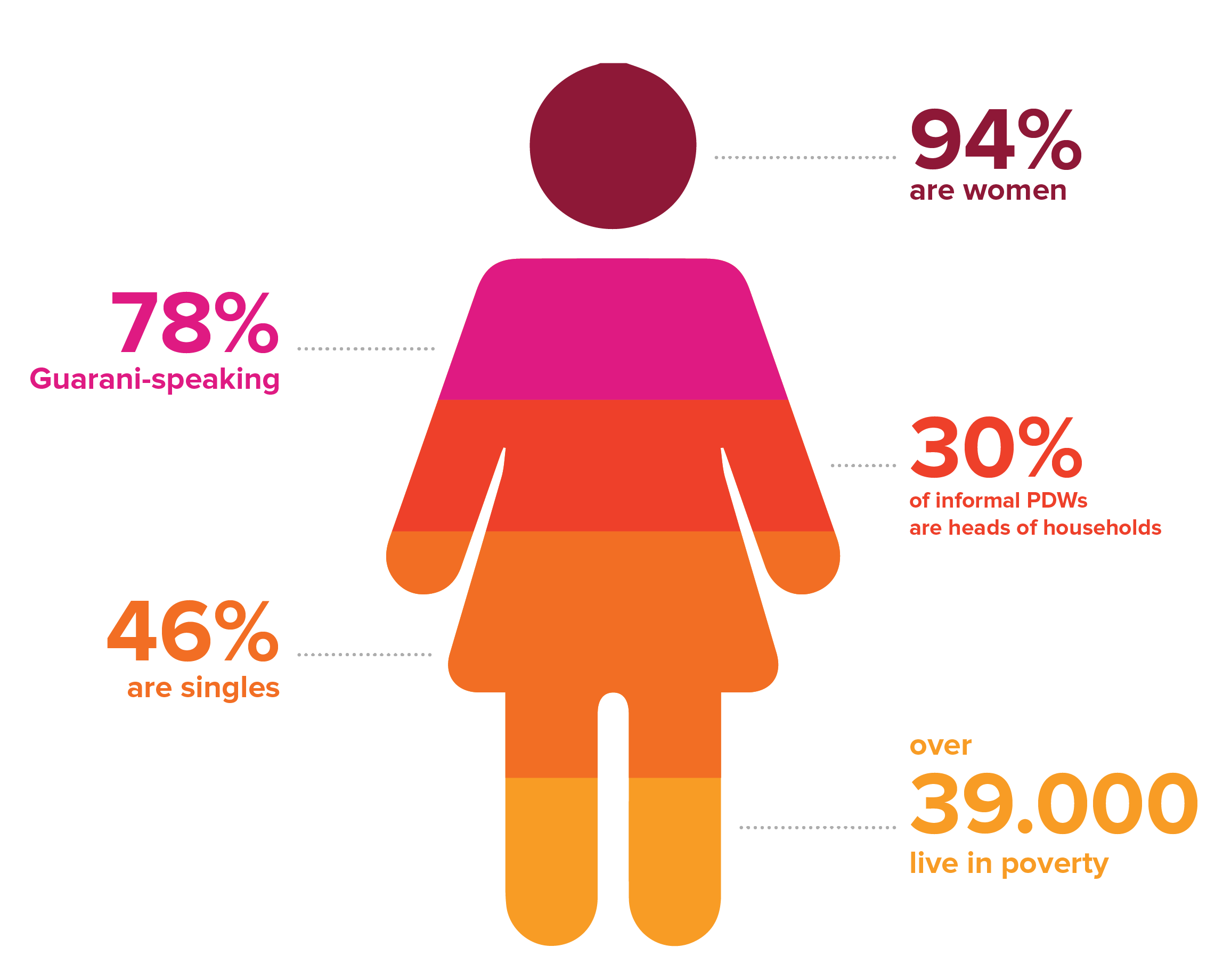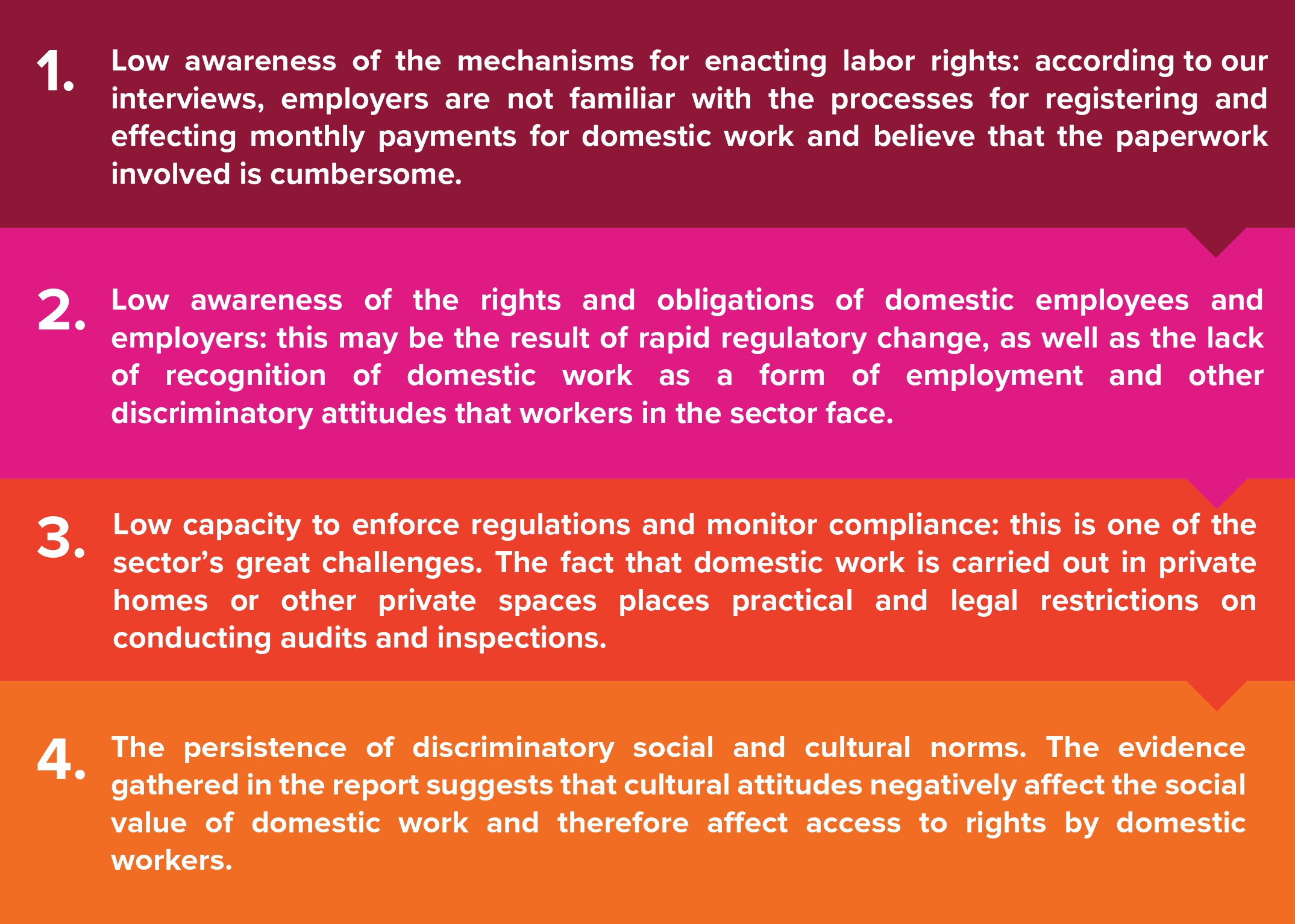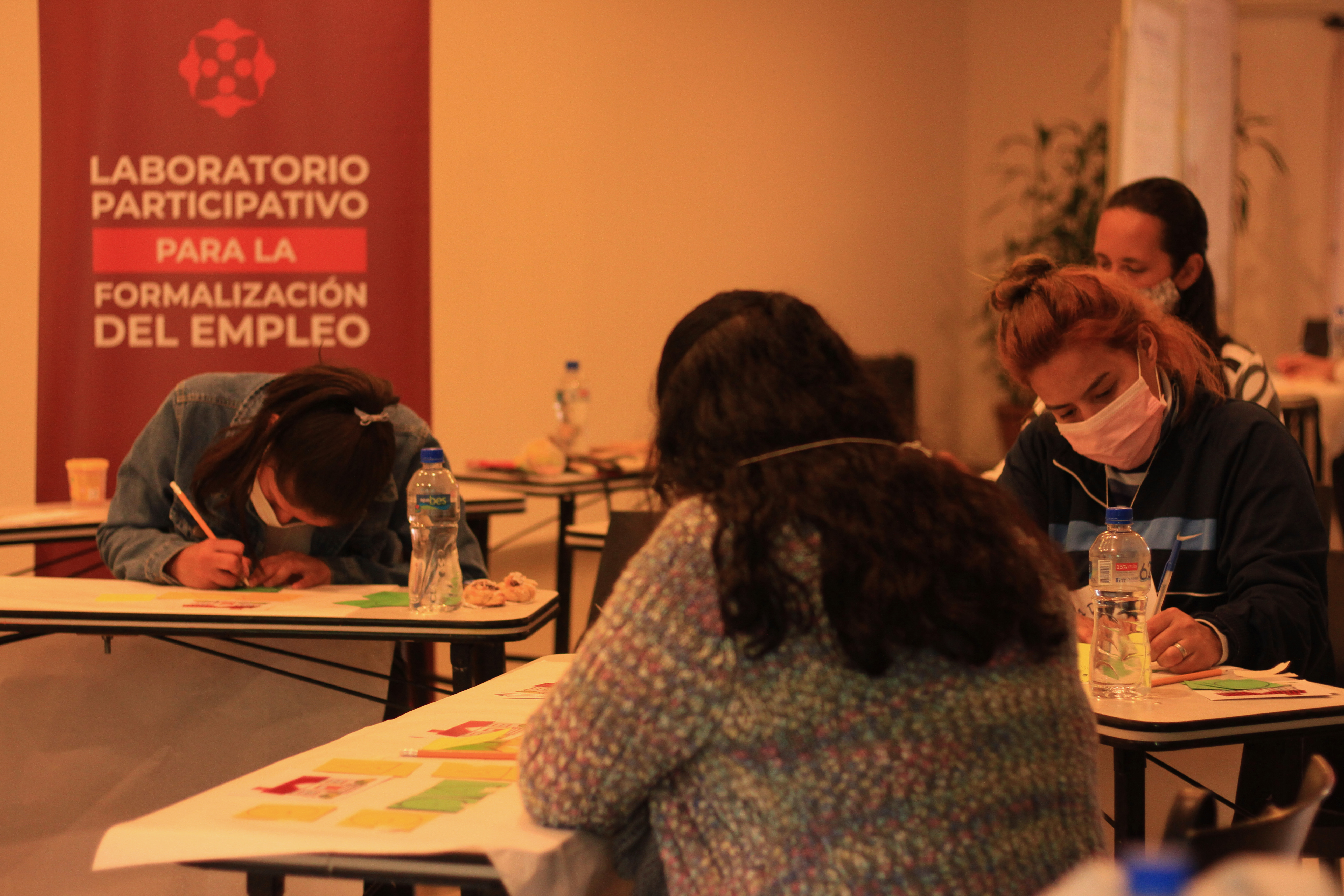A diagnostic for research for decent work conditions.
Paid domestic work, between the home and work
9 de Agosto de 2022

During the workshop, the domestic workers shaped their figures and reflected on elements that make up their identity in the labor market.
Domestic work sustains all productive and reproductive social activity and is one of the main forms of entry into the labor market for poor and socially vulnerable women. Our last blog showed the high levels of feminization and informality in the sector and named these as reasons to focus our second learning loop on paid domestic work.
Paraguay has made regulatory progress toward improving work conditions in this sector:
“Since the change in legislation, now you are considered a domestic worker, and before, nobody cared too much about you. It was something that wasn’t even talked about. You’d be called “the help.” Society did not see us as domestic workers. Now, we have a title, as workers. So, that is what changed. It’s important to talk about this, our work.”Domestic worker interview, 2021.
In this blogpost, we present the findings of the diagnostic report we produced in the discovery phase of the learning loop which sought to better understand the particular characteristics and causes of informality in the sector. For this, we reviewed existing literature on the subject, analyzed current laws and regulations, completed a descriptive analysis of quantitative data from the National Statistics Institute (Instituto Nacional de Estadística—INE) and the INE Time Use Survey (TUS) 2016 information, and interviewed experts on women’s labor issues, domestic workers, public officials, and employers of domestic workers.
A brief overview of paid domestic work in Paraguay
Paid domestic work is characterized by a workforce that is highly feminized (94% of workers are women) and largely Guarani-speaking (78%). Furthermore, 9 out of 10 paid domestic workers are informal, and 55% of informal domestic workers are employed in urban areas such as Central, Alto Parana and Asuncion. Over 30% of informal domestic workers are heads of households, most are single (46%) and over 39,000 live in poverty (INE, 2020).

Working conditions in this sector are precarious: it ranks as having the second lowest average income among the country’s occupational categories in 2020 (8.234 Gs. per hour), despite average workweeks of almost 40 hours. Access to formal contracts and guaranteed benefits such as vacation days is also low in the sector.
What barriers to formalization did we encounter?
Despite important steps towards recognizing labor rights in the sector, our diagnostic identified significant, persistent problems, such as:


During the workshop, the domestic workers shaped their figures and reflected on elements that make up their identity, expectations and knowledge.
Learning Questions
A series of new questions arise, based on the findings of the diagnostic report.
Regarding the legal context: How extensive is the lack of knowledge regarding regulation? How does this impact the formalization of domestic work relations?
Regarding access to social security: how do employer and employee’s low levels of knowledge about social security and their perception of the value of social security coverage affect enrollment? What procedures can be improved to streamline the Social Security enrollment process for domestic employees?
Regarding domestic worker unions, which have emerged as important actors in the social debate over decent employment in the sector: how can worker organization modify deep-rooted cultural beliefs affecting domestic work relations?
With regard to impact of cultural norms: how do the beliefs held by employers affect the value they place on domestic work and their interest in formalizing domestic worker employment?
Finally, what are the principal barriers to formalization identified by employers, and what do they propose to overcome them?
These queries will guide the second, exploratory phase of the learning loop, in which we will deepen our understanding of our findings in order to design innovative interventions that can foster the formalization of paid domestic work.

Domestic workers reflected individually and as a group on elements that make up their identity in the labor market.
Para leer este blog en español, click aquí.

 Locations
Locations